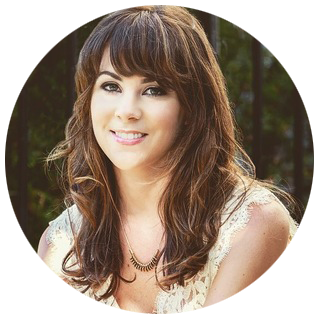Spotted: A Diet in Disguise
Dr. Colleen Reichmann
I’m just going to come right out and say it- I hate the term “clean eating.” Never has a diet used such obviously guilt-ridden vernacular. The message behind clean eating is clear, isn’t it? Certain food is “clean” (i.e. moral, pure), and other food is “dirty” (impure, bad, amoral).
Clean eating culture is dangerous because it is not super transparent. Advocates of clean eating like to assert that it is not a diet, but a lifestyle change.” Sounds pretty doesn’t it? Lifestyle change. The small font not included by most clean eating advocates is that this lifestyle change includes a series of food rules and restrictions. Or, in other words, it is a change of your style of life into one that includes dieting.
Clean eating is a dressed up term for diet. Plain and simple. Where did this euphemism come from? Well, the idea of dieting seems to have gotten a little bit of a bad rap over the past ten years or so. Maybe that is because the public was catching on that diets don’t work. Maybe it coincides with the influx of militarized fitness fads. Whatever the reason, one thing is for sure—the food industry and media have capitalized and continue to capitalize on the idea that we no longer need to diet—we just need to change. The worst part? We, the public, eat it up (pun intended).
We charge out to buy spiralizers and denounce fruit as too sugary. We load smoothies with vegetables (seriously come up—let’s call a spade a spade—smoothies made mainly from vegetables suck) and whip up bone broth soup because of collagen. We are attracted like magnets to food products listed as organic. Milk chocolate? Processed crap, we mutter to ourselves. Cacao bits? Load ‘em up.
I do not actually have any problem with wanting to incorporate healthy food into one’s diet. However, anything taken to the extreme is problematic. It is just as bad to eat just kale three meals a day as it is to eat pop tarts three meals a day. And the problem is, the concept of clean eating becomes extreme so easily. Think about it. The term “clean” denotes a morality of the food that we consume. Some foods are good, clean, or pure. Others are bad, dirty, or amoral. We humans tend to become activated by messages about morality. Hence, the judgement-laden undertones of the term “clean eating” affect our psyche in undeniable ways.
The good news? There have been a spattering of articles over the past year or so that question the benefits of “clean eating,” hence it is reasonable to assume that the term will be defunct in the next five years. The bad news? Be aware: fad diets are shapeshifters. When one wears thin, the wellness industry tends to catch on and coins a brand new name for said diet. Hence the only way to truly shut down diet culture is to educate ourselves about those roses-by-other-names (i.e. diets in disguise).
So the next time you hear about the newest wellness fad involving food, be sure to ask yourself:
1. Does it encourage restriction?
Is this food fad suggesting that eating less is important? Is fullness considered a negative? Is the message “eat less to be happy” pushed at all?
2. Does it subtly or blatantly include the message that thinner=healthier or better?
Is the message behind the food fad, “eat this way and you will look like him/her?” Does it promote the idea that weight loss is the golden fountain of health?
3. Does it suggest cutting out certain food groups?
Does the food fad promote the message that certain foods should be completely banned from your energy intake? Is the word toxic used at all?
4. Does it promote mistrust of your body?
Does the message suggest that our bodies need to be outsmarted? Does it suggest that certain foods are the equivalent of drugs to our minds?
Summarily, when it comes to food fads, a good rule of thumb is—if it promises salvation through eating—it is a fad diet. So call out the wellness industry every time they shape-shift. Protect your emotional well-being by shouting back at diet and “wellness” culture. Food freedom and overall happiness will be worth the effort-I promise!
Dr. Colleen Reichmann is a licensed clinical psychologist, practicing in Williamsburg, Virginia. She works in her private practice, Wildflower Therapy and is a staff psychologist at the College of William and Mary. She is recovered from an eating disorder, and this experience sparked her passion for spreading knowledge and awareness that full recovery is possible. She is now an eating disorders specialist, and has worked at various treatment facilities including University Medical Center of Princeton at Plainsboro Center for Eating Disorder Care, and The Center for Eating Disorders at Sheppard Pratt. She is an advocate for feminism, body positivity, health at every size, and FULL recovery. She writes about body image and eating disorders for morelove.org, Project Heal, Recovery Warriors, and The Mighty.
Visit her website.











